
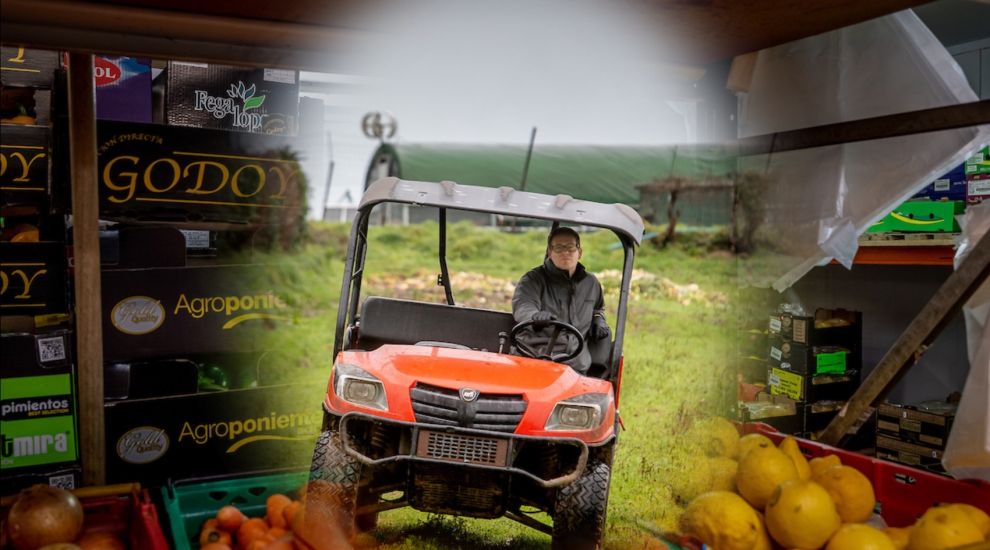
It’s difficult to imagine the island’s busy roads without a white Fungi Delecti van passing you on a delivery…but did you know the family-run business was set up nearly 30 years ago, from an idea that grew out of a trip to the Paris mushroom market?
Fast-forward to now, and, like most of us, Fungi Delecti’s director, owner and driving force, Jamie Racjan, has had to make some adjustments of his own which now include setting the alarm clock a little later in the morning.
Express went to meet him...
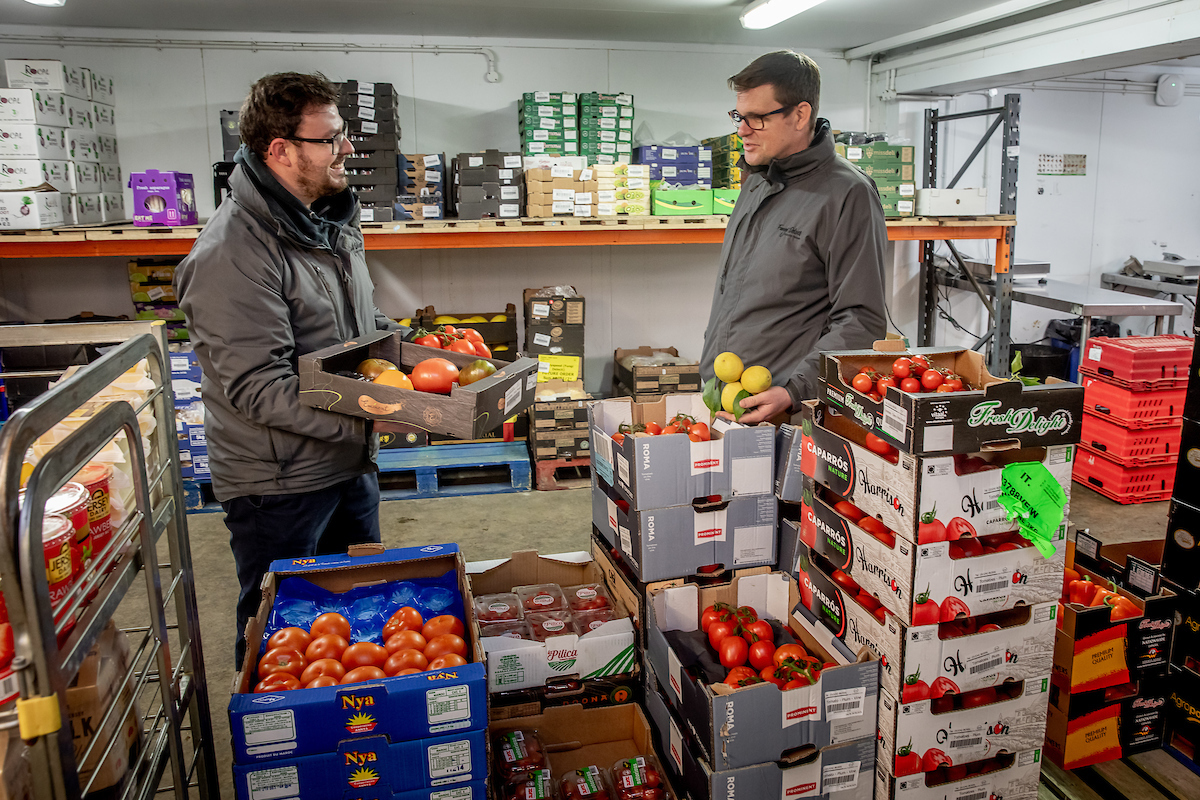
Pictured: Jamie (pictured right) started out selling the farm's mushrooms at the age of 18.
Shiitake mushrooms were practically unheard of when Jamie’s dad, Mick, hit on the idea of growing them in Trinity. After a year or so of trial and error, and everything else that goes into starting something from scratch, they had enough for the then 18-year-old Jamie to go out and sell in commercial kitchens.
Now in 2021, Jamie sits on a business that has had to rapidly evolve; and so has he. As we hold the conversation over a socially-distanced phone call, Jamie is still getting used to the idea of no more 04:00 alarms, as he hands the wholesale side to business partner Fabio De Pinho, while he looks after the online shop, and finds the new produce to inspire the home chefs as well as professional chefs. Aside from a few issues to deal with after returning from leave, Jamie is looking forward to the arrival later of 25 new cheeses from a very small producer in Arundel.
It’s almost back to how he started in the business, when he was driving between professional kitchens. Back then in the early 90s, aside from growing mushrooms in a way no one else seemed to be doing outside of Japan, Fungi Delecti quickly developed another service, just at the right time.
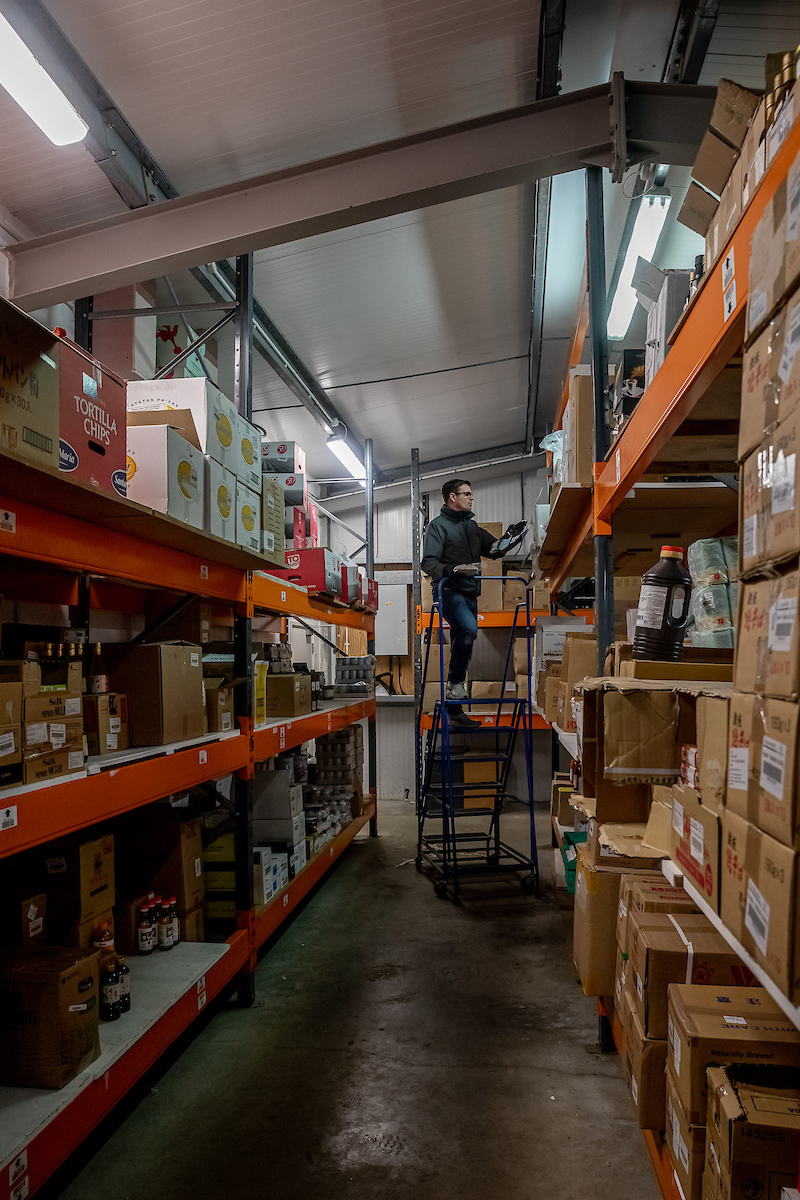
Pictured: "As we went into the 90s the food market exploded."
“We understood the need for good quality products. The wholesale market around that time was very much stuck in the 70s and 80s, as Jersey was then. As we went into the 90s the food market exploded. What was expected, and what was demanded of ingredients, was far more specific than the Iceberg and Prawn and Mary Rose sauce of the 70s.”
And that was the new micro veg and molecular gastronomy that needed research to understand what would be required for the plates of food now being served in restaurants. It was those conversations Jamie was having with chefs in their kitchens that spurred on the development of Fungi Delecti, alongside the mushrooms. They had to start sourcing those ingredients as well as producing them.
“I was sorting out their problems. There was no need for the way Jersey was handling wholesale back then. There was no need for the mass buying of products. You’d get a pallet of lines, and the first 15 or 20 boxes would be fine, but by the time you had got to the end of the pallet they were rank. So, we started importing far more frequently than anybody else, and better quality, so that all of a sudden, the products got better.”
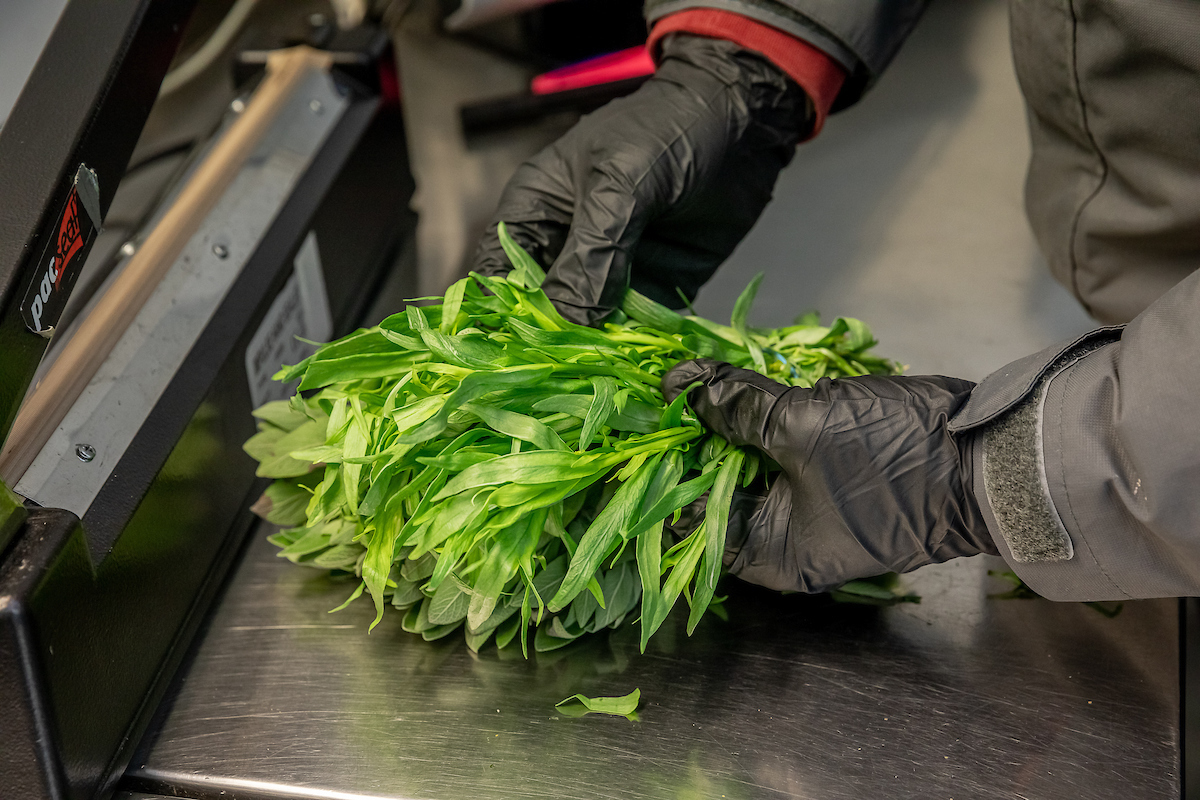
Pictured: It was important to Jamie and his family as custodians of the land that they developed it sympathetically.
Jamie, who has never wanted to work for anyone else, accepted long ago that for him, the days of driving around with a ton of fresh produce have long gone. These days it’s about talking to accountants as the restaurants, hotels and businesses that he supplies are working to much tighter margins. But then, the business has changed in other ways, especially more recently due to covid-19.
“We’ve toyed with the idea of online for many years but backed away from it, because wholesale was so good,” Jamie explained. “Covid has pushed us into that. Covid has made me diversify very quickly to keep all of the staff in jobs here and keep the stock moving. And what that’s taught us is that there are still people out there who want to get inspired by those random things and we don’t have to physically go to their door in the van to show them, they can see them online.”
He describes the public reception to their move online as very heart-warming, feeling that the business has remained under the radar for almost thirty years.
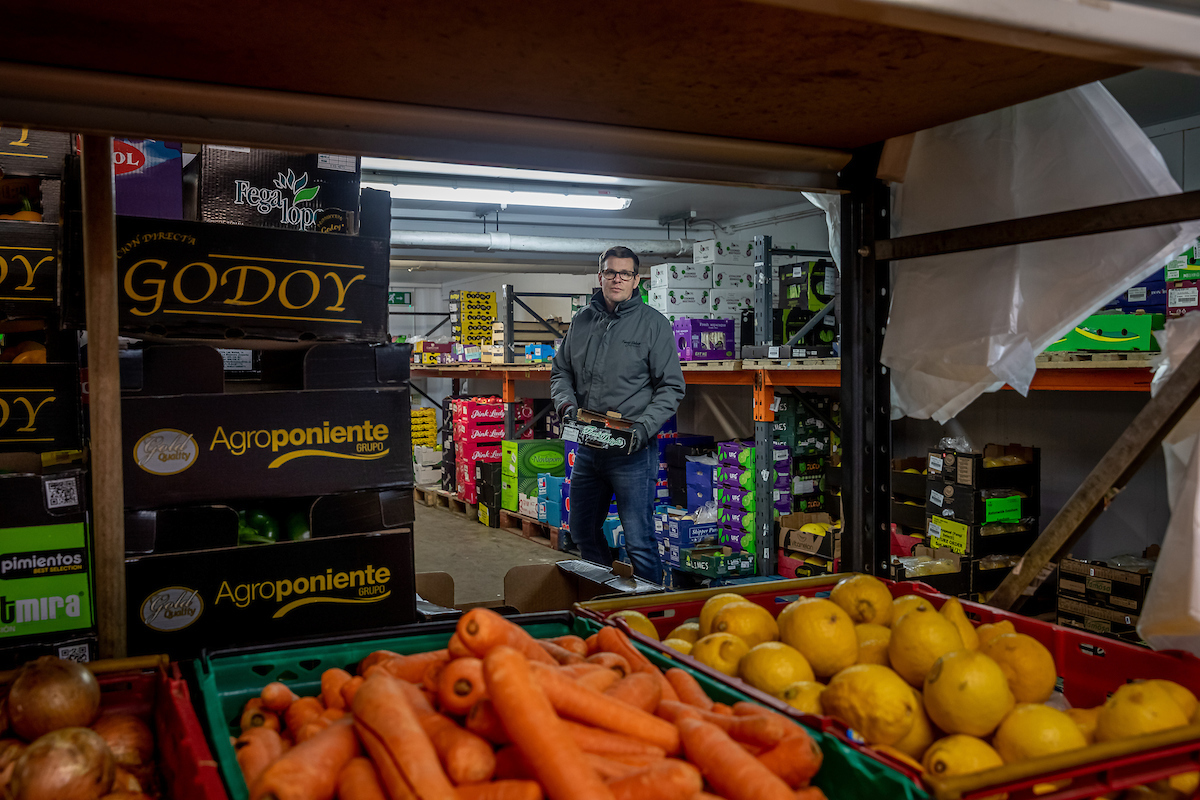
Pictured: "People didn’t realise we were the fifth emergency service to chefs for two decades."
“If you weren’t a chef or you weren't involved in hospitality you just saw the vans of Fungi Delecti, and thought we just sold mushrooms. People didn’t realise we were the fifth emergency service to chefs for two decades. We were the people that understood and helped develop menus. That was our core strength for years. But as soon as covid hit, that strength became a massive weakness. No one knows what we do or what we’ve got, and I’m sitting on £150,000 worth of stock that’s going out of date very quickly.”
The pandemic has pushed Jamie and his team into having to think again. They can no longer rely on an answerphone full of orders at Les Champs des Chemins, their base near Les Platons in Trinity for the last 25 years. As you pass it on the road above, you would never know there’s a fridge half the size of a football pitch nestling in the valley.
The farm played an important role in the Occupation story. In 1943 it was visited by Captain Ayton and his team of Commandos during their fateful mission, Operation Hardtack 28. They interviewed brothers Hedley and John Le Breton about life under the Germans before they were shown some nearby defences. You can almost imagine the scene on that cold, pitch black Christmas night as the camouflaged raiders with their blackened faces sat around the farmhouse table drinking glasses of Jersey milk the brothers gave them.
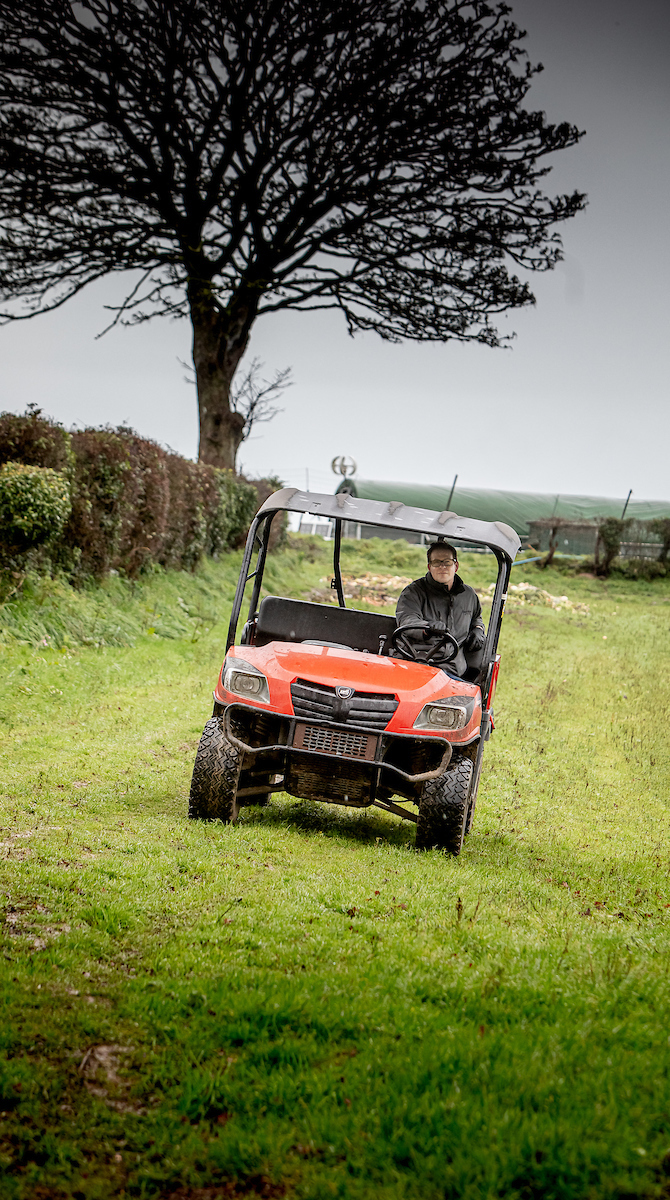
Pictured: Jamie said that for him, the days of driving around with a ton of fresh produce had gone, in place of business talks and accountants.
It was very important to Jamie and his family as custodians of the land that they developed it sympathetically. They don’t farm it themselves any more, and offer it free of charge to young farmers who want to give farming a go. There are three doing so now.
“Estate management is so critical, and we have about 25 vergées up here now. That can get overgrown and messy very quickly if it’s not used. If we’re not going to use it, we’d rather give it out and see it being used. And there’s nothing better than sitting on your terrace and watching somebody else work your land on a summer’s night. It’s fantastic to know they are getting an insight.”
One single box of mushrooms has gone on to develop into a business that supplies 150 pallets of fresh produce a week, and has a range of 1,700 products. It’s an impressive record and one that Jamie puts down to being in touch with the food producers, and knowing what people want to eat. All of that takes time to build up.
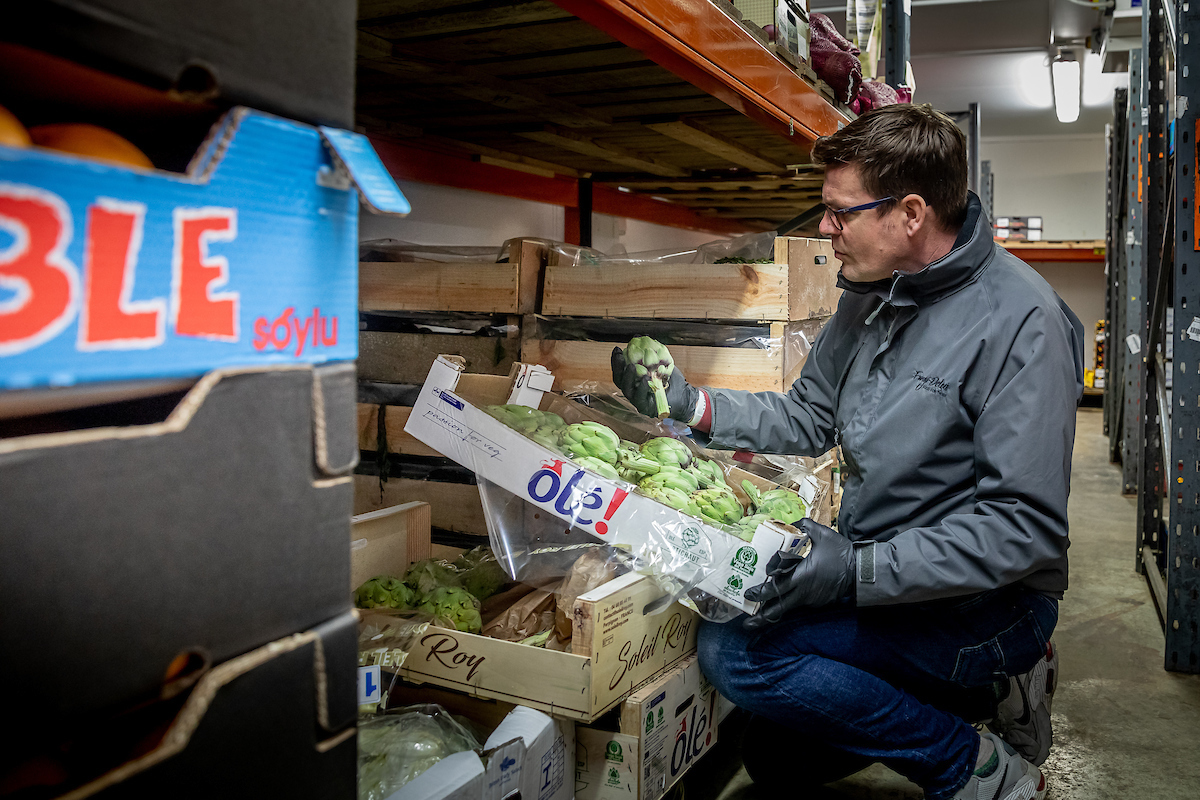
Pictured: "we started importing far more frequently than anybody else, and better quality, so that all of a sudden, the products got better.”
“I’ve sat down and drunk wine and broken bread with every single producer of the products that we stock. They are not here because they will get us the best price. They’re here because we understand the challenges, and the struggle the producer has taken and overcome to produce the product at the quality that you have.”
That relationship with the food, from the producer to the end user, probably explains why Fungi Delecti didn’t accept payment from the £100 Buy Local cards in the autumn. Although a supporter of the scheme, Jamie felt that the money needed to be spread further.
“We haemorrhaged through the first lockdown, but we worked really hard and our customers worked really hard to buy an awful lot of food from us and that had become successful over the summer. That £100 within our trade as far as I was concerned, if it was going to be spent on food it was to go to our end user because they were already buying from us.”

Pictured: "We worked really hard and our customers worked really hard to buy an awful lot of food from us and that had become successful over the summer."
But additional help from the government is needed, and it is needed now. Like all the other wholesalers, Jamie has made plans for when things will pick up again in the spring. 2021 will be busy, but it’s just about getting there. And it means continuing to need new equipment and vehicles, train staff in roles and manage all the usual fixed costs that come with running a massive fridge, and a fleet of vehicles.
It’s a lot to think about, and that leaves little time to switch off and enjoy his other passions, cycling - he fundraises on cycle trips for Macmillan Cancer Support Jersey – and live music. Living and working in Trinity means Jersey’s biggest live music event is just on his doorstep.
“I’ve always thought of Weekender as part of something that as a parish business we had to support anyway, because it was a parish event and it’s about showcasing Trinity and showcasing our beautiful pocket of the island.”
As a sponsor of Weekender, all his staff get VIP access during the event and he spends two weeks helping set up and take down, plus sorting out food and drinks supplies. In a normal year, it’s something to refresh and revitalise the spirit.
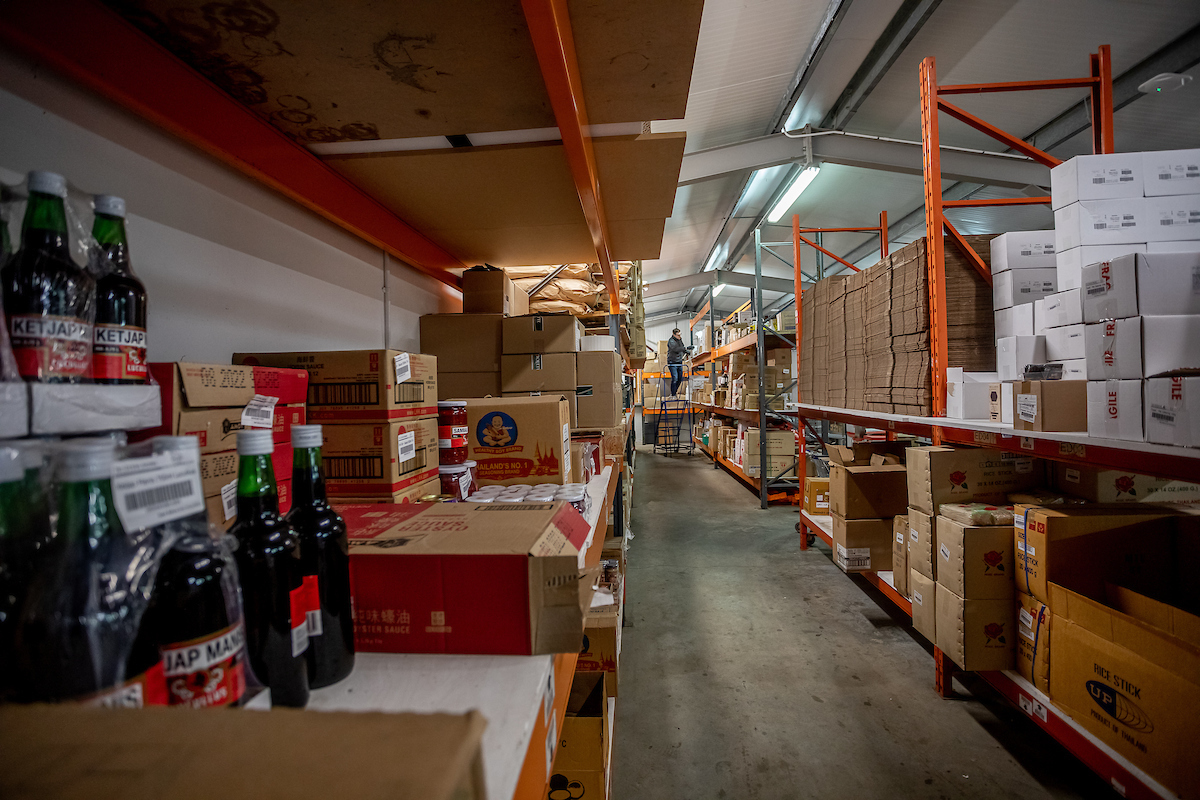
Pictured: One single box of mushrooms has gone on to develop into a business that supplies 150 pallets of fresh produce a week, and has a range of 1,700 products.
“I’ve never really understood why parishioners see a downside to the festival. For the mental health of everyone in the parish and the island it’s very important. I don’t think people realise just how vital it is and how well put together.”
Going back to where it all started for Fungi Delecti, and the Shiitake mushrooms are still very much part of the businesses. These days they are grown more for fun and to add an extra bit of excitement to the product range, but that doesn’t mean that the same dedication and attention to detail that produced that first box all those years ago has gone. Far from it. They are still grown on oak logs and no chemicals are used at all.
“As you can imagine it’s a huge loss leader, because it is very labour and cost-intensive. It was never going to pay the mortgage. But the Shiitake has always been a crucial part of the business because this is where we started, and it contains the ethos of the company. It’s a product that is grown for pure excellence. We’re not interested in how anybody else does it, we’re just interested in how we do it and what the best way to do it is.”
Comments
Comments on this story express the views of the commentator only, not Bailiwick Publishing. We are unable to guarantee the accuracy of any of those comments.